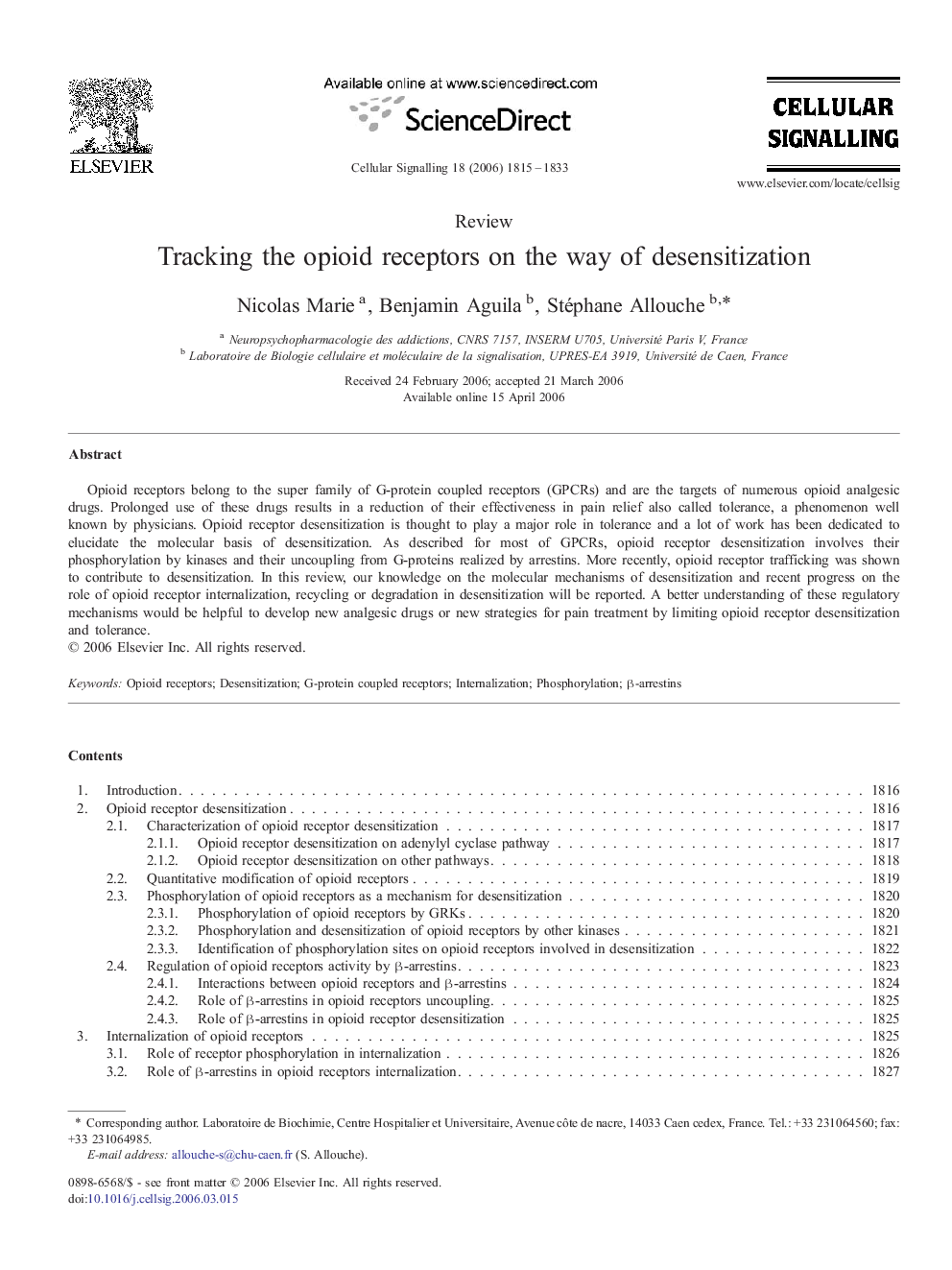| Article ID | Journal | Published Year | Pages | File Type |
|---|---|---|---|---|
| 1964924 | Cellular Signalling | 2006 | 19 Pages |
Opioid receptors belong to the super family of G-protein coupled receptors (GPCRs) and are the targets of numerous opioid analgesic drugs. Prolonged use of these drugs results in a reduction of their effectiveness in pain relief also called tolerance, a phenomenon well known by physicians. Opioid receptor desensitization is thought to play a major role in tolerance and a lot of work has been dedicated to elucidate the molecular basis of desensitization. As described for most of GPCRs, opioid receptor desensitization involves their phosphorylation by kinases and their uncoupling from G-proteins realized by arrestins. More recently, opioid receptor trafficking was shown to contribute to desensitization. In this review, our knowledge on the molecular mechanisms of desensitization and recent progress on the role of opioid receptor internalization, recycling or degradation in desensitization will be reported. A better understanding of these regulatory mechanisms would be helpful to develop new analgesic drugs or new strategies for pain treatment by limiting opioid receptor desensitization and tolerance.
